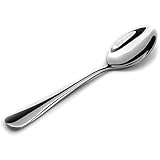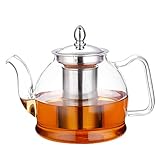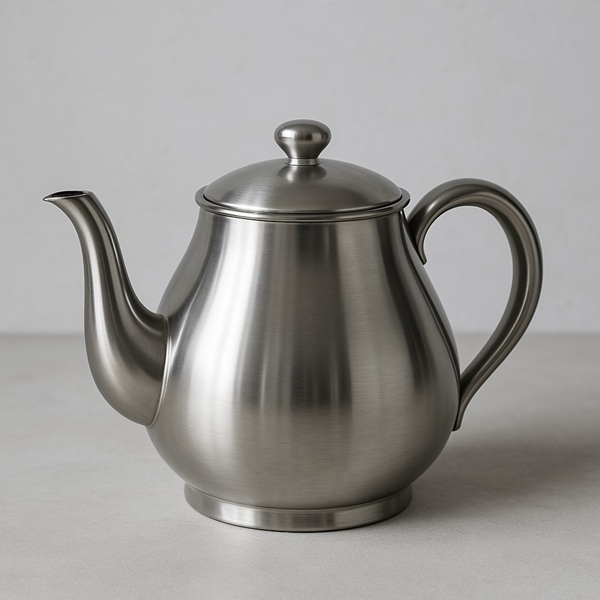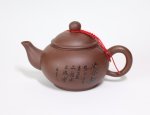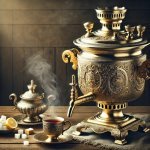Bai Ji Guan
–
The Rarest Wu Yi Tea
Bai Ji Guan is a Chinese oolong tea that is unlike any other. Sweet, floral and fruity, this is a rare, but wonderful tea.
One of the famous Rock teas, it is grown in the Wu Yi Mountains in China. Perhaps it is also the rarest of these teas.
What makes this tea so special?
Unlike other oolong tea leaves, this oolong tea is made up of tightly twisted yellow leaves that give it its unusual name.
Rich in healthy elements and with a wonderful flavor, this tea deserves a spot on your tea collection.
Come and taste a unique cup of tea!
What is Bai Ji Guan Tea?
This tea is a lightly oxidized oolong tea that is grown in the Wu Yi Mountain region in the Fujian province in China.
This tea is different from all other oolong teas because of the color of the tea leaves. Tight and strongly twisted, the tea leaves are yellow-greenish in color, not the usual dark green, with a hint of white.
The Legend behind the Name
Bai Ji Guan literally means "white cockscomb" or "white rooster crest". Historically, this name was given to the tea during the Ming Dynasty (1368 – 1644) due to the yellow color and crest shape of the tea leaf.
The legend that developed around the origin of this tea is somewhat different. It tells the story of a rooster that gave its life to protect a baby from an eagle. A monk seeing this act of bravery buried the rooster and it was there that the first bush of Bai Ji Guan grew.
Processing Bai Ji Guan Tea
Bai Ji Guan is semi-oxidized tea with a light to medium oxidation of 25% to 50%. It is a very rare tea when compared to other teas grown in the Wu Yi Region.
This tea is quite rare due to low yield of the tea bush, small leaf size and the late spring harvest time. At the same time, there are few tea masters that have the skills to properly process this exquisite tea.
Careful processing techniques are used to bring out the natural sweetness and fruitiness of this tea. This is a delicate tea with a mellow flavor that lasts in the mouth.
Let’s take a look at the benefits this Chinese oolong tea has to offer.
Benefits of Bai Ji Guan Tea
Oolong teas like Bai Ji Guan are rich in vitamins, minerals, amino acids, antioxidants and caffeine.
It is the combination of these elements in your daily cup of tea that provide you with a variety of health benefits.
Improved Metabolism and Weight Loss Tea
- One of the most important benefits of this oolong tea is its ability to help improve the health of your digestive system. This tea stimulates and soothes your stomach so it may help you to deal with painful indigestion.
- By speeding up your metabolic rate, your stomach may be able to break down food elements faster and help you digest the essential components you need, while getting rid of wastes faster.
- This tea may also improve the rate at which your body burns fat. So with a healthy diet and plenty of exercise, a cup of tea after your meals may boost your digestive function to help you lose weight in a healthier way.
Strengthen the Immune System
- A cup of tea a day may also help build up your defenses against bacteria and viruses by strengthening your immune system. Preventing inflammation and illness may be a great advantage.
- Drink a cup of oolong tea when you feel sick. It may not only comfort and warm you up, but it may also speed up recovery time.
Healthy Cardiovascular System
- Bai Ji Guan tea may help strengthen your blood vessels and help improve blood flow, lowering blood pressure. Tea is rich in elements that may help you lower bad cholesterol and sugar levels in your blood.
- So an unsweetened cup of tea may help strengthen your heart and help prevent cardiovascular diseases such as heart attacks and strokes.
Healthy Teeth and Strong Bones
- This naturally sweet tea dispenses the use of sugar. This may be a great help for your teeth. Its antibacterial properties help to prevent infections in the mouth and the buildup of plaque.
- Rich in calcium, a cup of Bai Ji Guan may help give you healthy teeth and strong bones, reducing the risk of osteoporosis.
Improving Mental Health
- Much like other oolong teas, this tea contains caffeine which may help to improve mental alertness and activity. At the same time, this tea contains an amino acid called L-Theanine, which helps the nerves to relax.
- While caffeine in tea is healthier than that in coffee because it is released at a slower rate into the bloodstream, it also helps you to stay calm and focused.
Fight Free Radicals
- Antioxidants in tea may help you in a number of ways, and under study is its ability to fight off free radicals that may cause damage to your cell structure and lead to the growth and spreading of tumors.
- Although further scientific study is still needed in this field, it may be the ability to ward off these elements found in stress and pollutants that may help your skin look young and fresh, preventing premature aging.
Find out more about oolong tea benefits to learn about how this type of tea may help you on a daily basis.
Caffeine in Bai Ji Guan Tea
Bai Ji Guan is an oolong tea and therefore contains caffeine. Even if this tea only has a moderate level of caffeine, there may be some unwanted side effects if you are sensitive to caffeine.
- Too much caffeine may cause headaches, irritability, anxiety, difficulty sleeping and insomnia. Consider cutting back on your daily tea intake and don’t drink tea before going to bed.
- If you are particularly sensitive to caffeine you may experience stomach aches and even skin rashes.
- If you are pregnant or breastfeeding, this is a time to talk to your doctor about your caffeine intake. You may need to change to decaffeinated or herbal teas.
Sometimes all you need is moderation, but if you have a preexisting heart condition, speak to your doctor about how much caffeine is it ok for you to drink on a daily basis.
Drinking Bai Ji Guan Tea
Shall we have a cup of tea? Following a few simple suggestions you can get a great tasting oolong tea.
Come and learn how to brew Bai Ji Guan tea.
Quantity: 2 tsp/cup (250ml)
Steeping Time: 1-2 minutes
Rebrew allowed: Yes
Milk: No
Sweetener: No
Tea Ware
- For Western-style brewing, the best vessel is a porcelain teapot, whereas for Chinese Gongfu-style brewing, it is best to use a Yixing clay teapot.
- Choose your teapot size to best fit the desired amount of tea you wish to drink with each brew. Don’t worry; you can reinfuse this tea several times.
- Begin by heating your teapot and cups with hot water that you discard before brewing the tea. This will keep your tea warm.
The Tea
- Place 2 teaspoons of loose leaf tea per cup of water (250ml or approx. 8oz). If you wish to drink a stronger tea, add more tea leaves to your teapot.
The Water
- Oolong tea does not require boiling water. The temperature should be between 90ºC and 95ºC (194ºF and 203ºF). Consider purchasing a thermometer if your kettle doesn’t have a temperature setting.
Steeping
- Pour the hot water into the teapot and let it steep for a short period. About 1 to 2 minutes should be enough to steep this tea.
- Make sure to pour all of the tea into the tea cups or else use an easy to remove tea filter. Do not let your tea keep steeping. This will allow you to reinfuse your tea leaves several times by adding about 15 to 30 seconds to the infusion time.
Drinking
- Your Bai Ji Guan should present a bright yellow to orange color in the cup (use white cups to best see the color of the brewed tea).
- This is a very aromatic tea, so you should feel a strong floral honeyed fragrance. There is a wonderful fruitiness also so take a moment to identify all the layers of this complex tea.
- Take a sip of your Bai Ji Guan tea and taste the freshness of this oolong tea. There is no need to add sugar to this tea as it has a uniquely sweet aftertaste that lingers in your mouth, much like notes of honey.
This is a very delicate tea that evolves with each time your brew it. Don’t be tempted to increase the water temperature if you wish to have a stronger tea. Add more tea or allow it to steep a little while longer.
Store this tea in an airtight container so as not to let humidity damage the leaves and ruin a great Chinese oolong tea.
Enjoy Tea Time!
Read more about this and other teas in related pages that you may enjoy:
Return from Bai Ji Guan Tea to Types of Tea
Return to The Right Tea Homepage
”In the Taste of a single cup of tea you will eventually discover the truth of all the ten thousand forms in the universe.”
- Attributed to Kyongbong Sunim, Ch'an (Zen) Master

Do you have a question? Then feel free to Contact Us!
And don’t forget to follow us on Facebook to receive updates, photos and interesting tips and news! Follow us also on Pinterest!
Search Website:
Be healthy
with a wide
choice of herbs!

Prepare your tea!
Try these
Tea Samplers!

Wellness Pack at ArtofTea.com

Award Winning Pack ar ArtofTea.com
Find other
tea time items at ...


